The Backlash on ESG has arrived
Turn on the television, open a newspaper, and browse online and you will notice a growing trend on ESG. Lawmakers in some states of the USA have launched bans and attacks on ESG. Pension funds and other large institutional investors are under fire for allocating funds based on ESG rankings.
Meanwhile, sustainability advocates in several countries have raised strong accusations that ESG is greenwashing- providing cover for organizations that are massive pollution contributors.
Fact checking news sources have rightly pointed out that ESG ratings company Truvalue Labs gave FTX a higher score on 'leadership and governance' than Exxon/Mobil.
How did something that started with such good intentions turn so wrong?
And how should your board and management team approach this now?
First of all let us be clear on what ESG is:
Environmental, Social, and Governance. The CFA Institute provides us with this definition and clarifies "Investors are increasingly applying these non-financial factors as part of their analysis process to identify material risks and growth opportunities."
Every investor whether large or small, public or private, is evaluating the risk elements of any investment they choose to make. Allocating funds at scale brings ever greater responsibilities with it, and professional investors are under pressure to make the best decisions possible for their stakeholders.
Confusion of various certifications and designations serve to further blur the discussions and potential advantages and disadvantages of embedding ESG into an organization.
The public today is skeptical. Rightly so.
The b-corp status for example is described as "B Corp Certification is a designation that a business is meeting high standards of verified performance, accountability, and transparency on factors from employee benefits and charitable giving to supply chain practices and input materials."
Yet detractors rightly point out that Nespresso, manufacturer of 14 Billion "pods" per year proudly trumpets their "B-Corp" certification. Environmentally oriented consumers and governance experts are asking how it is possible that a division of a multinational could certify without taking the entire organization into consideration?
What can you do as a board member of CEO?
You can start by having a clear discussion on what your intentions are as an organization.
Specifically, how do your values link to the future in terms of Environmental and Social Goals?
Where can you demonstrate the outcomes of your decisions on "E" and "S" and importantly the impacts those have on your investors, suppliers, customers, and the communities you serve?
What impact are your business models having on the external environment, both locally and globally?
Detail this in your Strategy and clearly explain how both the board and management are supporting your "E" and "S" decisions and what this means to all your stakeholders.
Governance Matters more than Ever
Recent explosive failures including FTX, Silicon Valley Bank, and Credit Suisse have wiped out hundreds of billions in shareholder equity and debt holder obligations. Three clear cases of massive Value Destruction.
Now is the moment you can re-visit your governance structures and confirm:
1) How are decisions being made?
2) What risks are considered?
3) Why are your assumptions about the future still valid?
4) Where do you have governance concerns that need to be addressed?
A recent study of the Standard and Poors 500 (S&P 500 index) indicates that in 1958 the average life-span of a corporation was 61 years. In 1965 that same index had decreased in life span to just 32 years. In 2020 the same life span of the index was a mere 21 years, and in 2022 this decreased even further to a startlingly low "less than 18" years.
Governance and Strategy determine which companies survive and which are destroyed.
While governance may not be the most exciting item on your agenda (to some,) and at the same time Strategy is unfortunately crammed into a late evening or weekend worksession, the two items will determine how long your company will exist for.
In addition, the "E" and "S" components are what you will be remembered for and ultimately what the media will report on regarding your company.
What will your legacy be remembered for, and where will your decisions impact the communities and stakeholders you serve?
The Future is not X+1.
Strategy is Mastery.
Contact the author Scott B. Newton, managing partner at Thinking Dimensions, for further information and insights on how you can make ESG work for the performance in your organizations.





